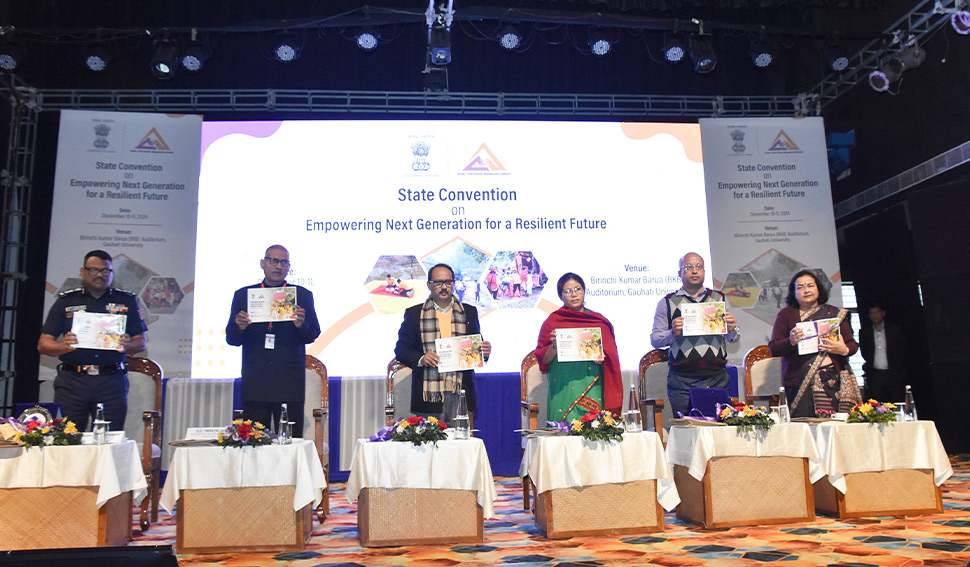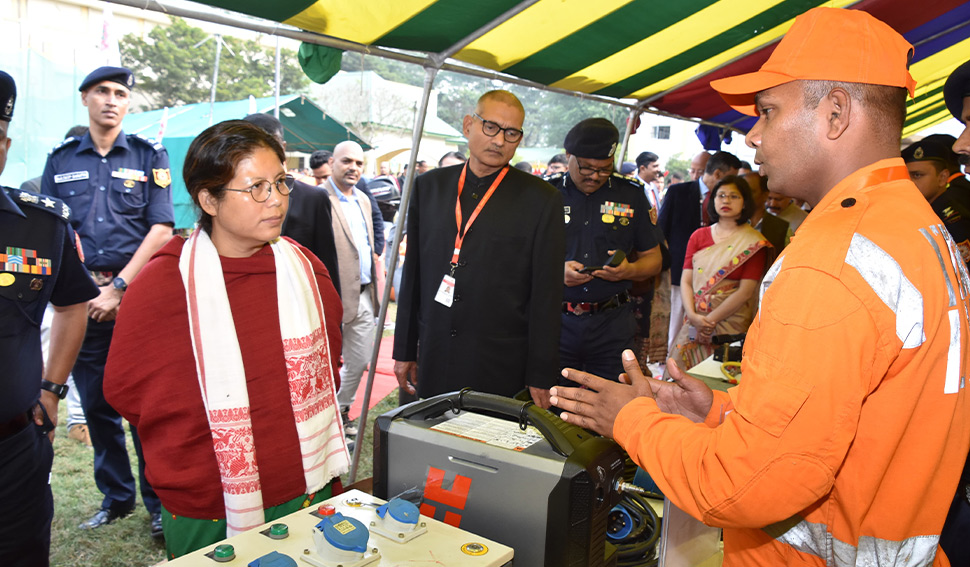Convention on empowering youth for disaster resilience kicks off in Guwahati

A two-day state convention titled “Empowering the Next Generation for a Resilient Future” commenced today at the Birinchi Kumar Barua (BKB) Auditorium, Gauhati University on Tuesday. Organized by the Assam State Disaster Management Authority (ASDMA), the event seeks to train youth and community volunteers in disaster risk mitigation and foster resilience at the grassroots level.
The convention was inaugurated by Assam’s Minister of Sports and Youth Welfare, Nandita Gorlosa, who underscored the critical importance of sustainable living and preparedness in minimizing the impacts of natural and human-induced disasters. She emphasized that lessons from past disasters must inform efforts to protect not only human lives but also animals and ecosystems.
As part of the convention, an exhibition was inaugurated by Minister Nandita Gorlosa. The display showcased disaster management activities by various stakeholders, including volunteers and students, highlighting innovative and practical approaches to disaster resilience.
ASDMA’s Chief Executive Officer, Gyanendra Dev Tripathi, emphasized the organization’s focus on empowering youth as first responders through programs such as Aapda Mitra and Circle Level Quick Response Teams (CQRTs). He also noted efforts to integrate disaster preparedness into school curriculums, equipping the younger generation with skills and awareness to act as effective agents of change during emergencies.
In his keynote address, Prof. Nani Gopal Mahanta, Vice Chancellor of Gauhati University, stressed the importance of blending traditional knowledge with modern strategies for disaster management. He highlighted examples from Assam’s heritage, such as the Mising tribe’s flood-resilient “Chang Ghars” and innovative solutions like floating hospitals, as effective localized responses to disasters.
Arunasis Chakraborty, Head of the Centre for Disaster Management at IIT Guwahati, reflected on the devastating 2023 Himalayan floods, emphasizing the critical need to link education with disaster preparedness. Highlighting that 1.2 billion youth globally face disaster risks, he underscored the urgency of equipping them with the skills and awareness necessary for a resilient future.

Adding to the convention’s highlights, Minister Nandita Gorlosa launched a Coffee Table Book titled Empowering Next Generation for a Resilient Future. The event brought together a diverse audience, including district project officers, field officers, 40 top-performing Aapda Mitra volunteers, and 61 representatives from Circle Level Quick Response Teams (CQRTs), fostering collaboration and capacity building.
Representatives from 10 states, such as Kerala, Karnataka, Odisha, and Sikkim, shared innovative disaster management models and best practices. Key programs showcased by ASDMA included CQRT, DDRF, Sanjeevani Women Cadres, and the Community Response Portal, demonstrating the state’s focus on integrating traditional knowledge, community participation, and innovative strategies.
The convention underscores ASDMA’s unwavering commitment to making Assam disaster-resilient by prioritizing grassroots initiatives, empowering youth, and fostering a culture of preparedness.

Leave a Reply